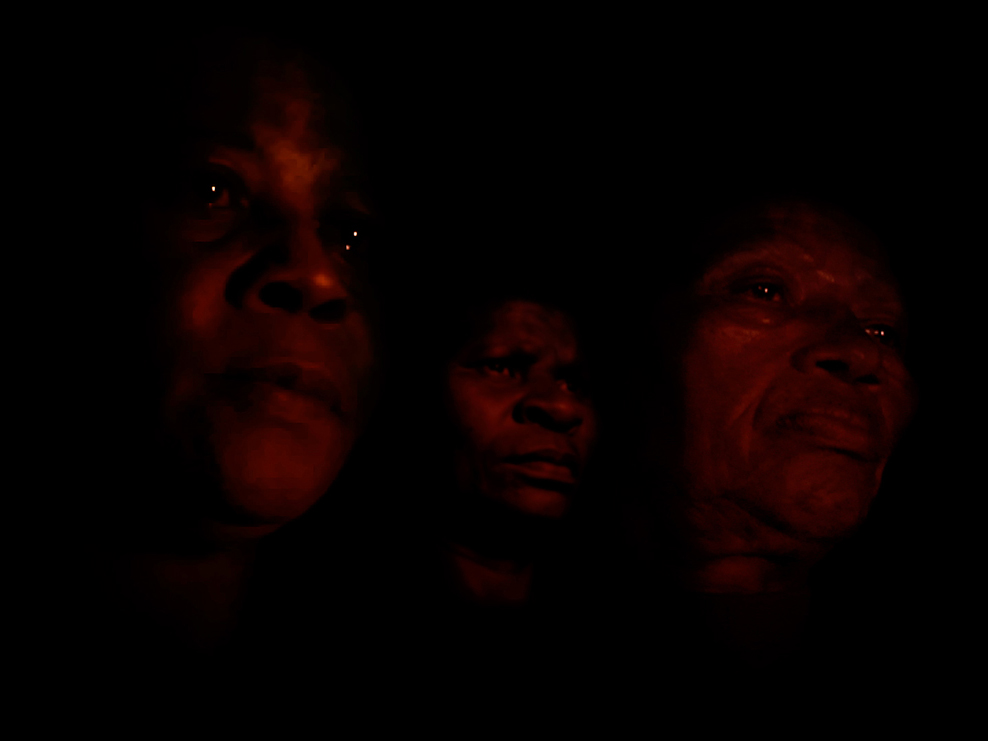Pedro Costa + Os Musicos do Tejo

Filmmaker Pedro Costa’s deep-rooted desire to work with music and song has resulted in this wondrous musical stage production, created in close collaboration with baroque music ensemble Os Músicos do Tejo. The Daughters of Fire follows the saga of three young Cape Verdean sisters who arrive in a foreign European port fleeing yet another devastating eruption of the Fogo volcano. In this unknown country, they wander, hand in hand, evoking their secret fears through music and song. This stage production laid the groundwork for a series of films that Pedro Costa is currently developing.
“The Cape-Verdian people have always endured the harshness of their native land, it’s their fate to search for better lives all over this earth: Lisboa, Paris, Rotterdam, Boston. Fleeing yet another devastating eruption of the Fogo volcano, three young sisters arrive in a foreign European harbour. In this unknown country, they wander, hand in hand, conjuring their secret fears through music and song. Yet, no demons come to greet the young girls, instead a band of merry musicians seems to challenge their will to resist the charms of this new, deceiving society. A mysterious voice is heard: leaning against a high lava wall, a fellow Cape-Verdian, a comforting little radio on his lap, sings an old immigrant song of sorrow and hope. Above the wall, projected in light and shadow, appears the sinister face of a jester, part wild prophet, part junkie. He will lead us through the alleys and the days and nights of the suburban shantytown where thousands of immigrants barely survive. Later, under a blazing black sun, the three sisters reappear, tired and disillusioned as if they were carrying the whole world on their shoulders: they have now joined the working class, fully dressed in their cleaning ladies’ uniforms. Once again, the band of musicians comes swirling round. The girls’ voices join in a desperate prayer, sung in their native creole dialect. Falling under the spell of a melancholic lullaby, the sisters are separated; the two younger ones disappear behind the black wall while the eldest sings: ‘in view of all the misery, people just throw their unbearable lives away...’”

